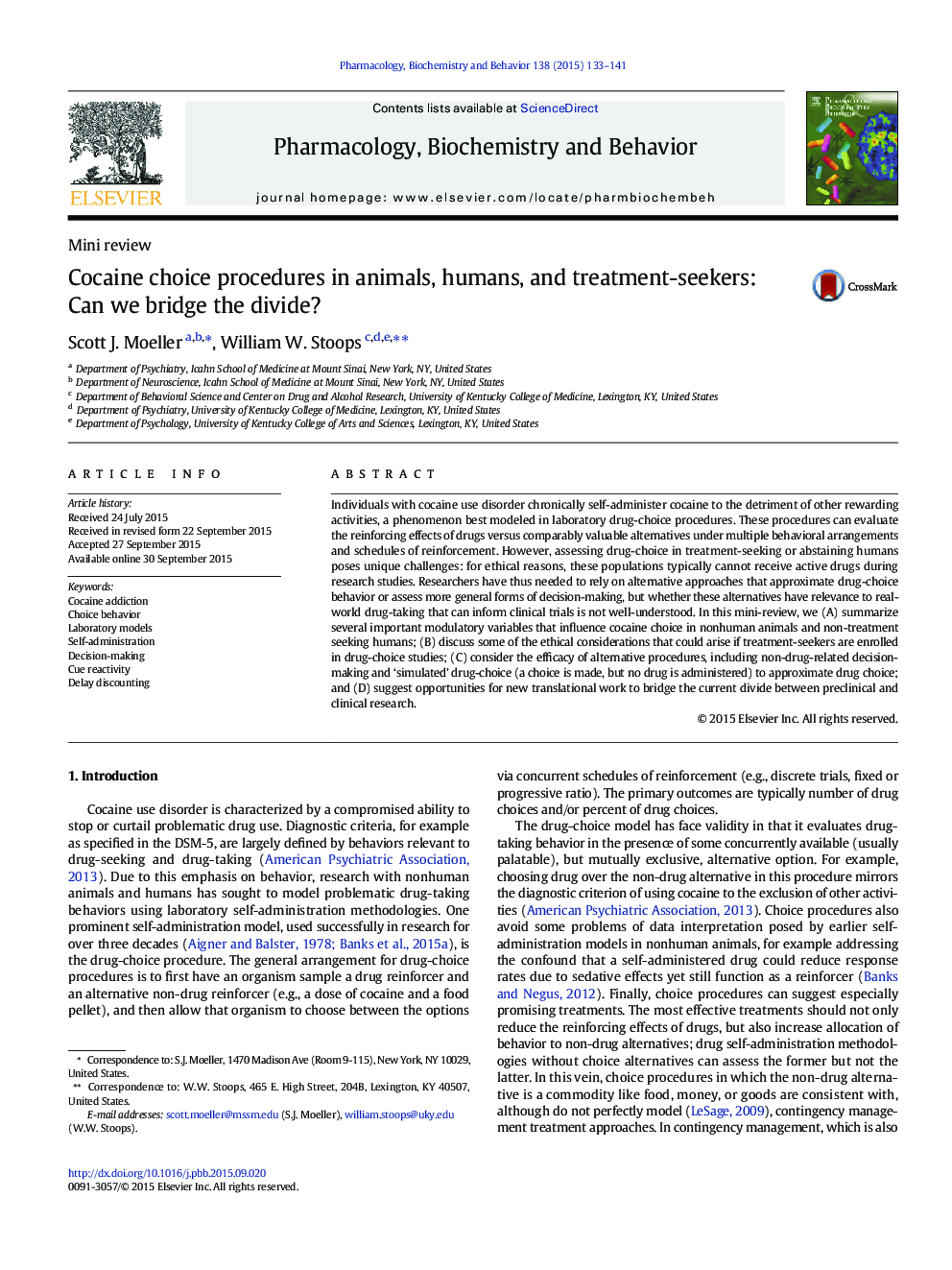| Article ID | Journal | Published Year | Pages | File Type |
|---|---|---|---|---|
| 2012705 | Pharmacology Biochemistry and Behavior | 2015 | 9 Pages |
Abstract
Individuals with cocaine use disorder chronically self-administer cocaine to the detriment of other rewarding activities, a phenomenon best modeled in laboratory drug-choice procedures. These procedures can evaluate the reinforcing effects of drugs versus comparably valuable alternatives under multiple behavioral arrangements and schedules of reinforcement. However, assessing drug-choice in treatment-seeking or abstaining humans poses unique challenges: for ethical reasons, these populations typically cannot receive active drugs during research studies. Researchers have thus needed to rely on alternative approaches that approximate drug-choice behavior or assess more general forms of decision-making, but whether these alternatives have relevance to real-world drug-taking that can inform clinical trials is not well-understood. In this mini-review, we (A) summarize several important modulatory variables that influence cocaine choice in nonhuman animals and non-treatment seeking humans; (B) discuss some of the ethical considerations that could arise if treatment-seekers are enrolled in drug-choice studies; (C) consider the efficacy of alternative procedures, including non-drug-related decision-making and 'simulated' drug-choice (a choice is made, but no drug is administered) to approximate drug choice; and (D) suggest opportunities for new translational work to bridge the current divide between preclinical and clinical research.
Keywords
Related Topics
Life Sciences
Biochemistry, Genetics and Molecular Biology
Biochemistry
Authors
Scott J. Moeller, William W. Stoops,
